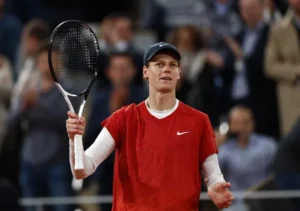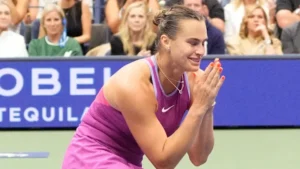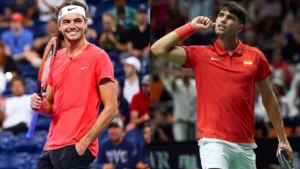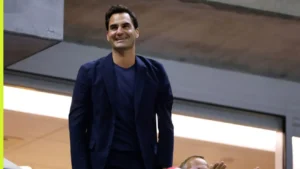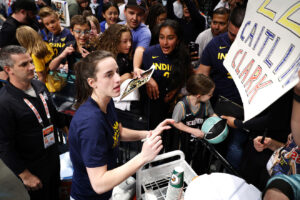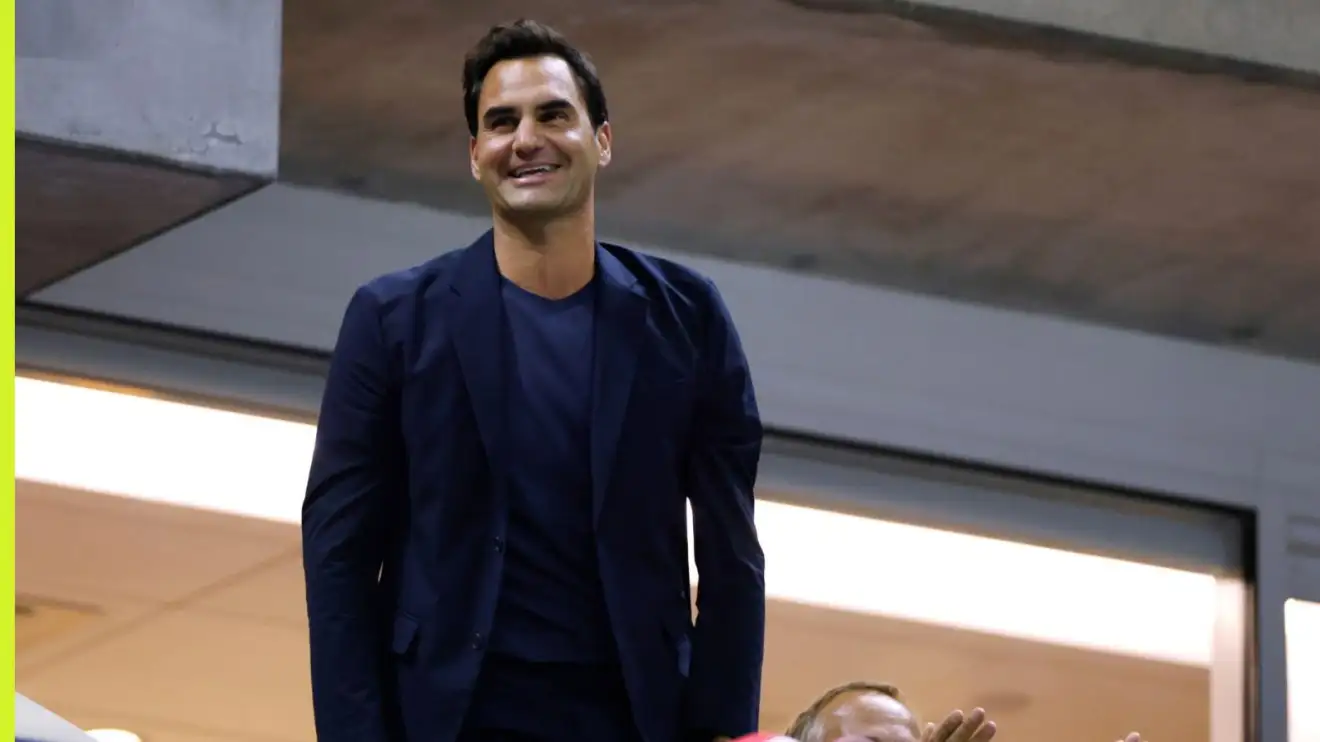
Roger Federer has returned to the tennis spotlight with some marketing activities at the Laver Cup, and he took some time during his media obligations to provide advise to the stars of tomorrow.
Federer is in Berlin to play a key part in a Laver Cup event he helped create before deciding to retire from tennis in London in 2022.
In addition to launching a new Wilson racket and playing with the black frame on the Laver Cup court, he spoke to the media about his experiences rising through the ranks of tennis, arguing that young players should take responsibility for their own careers rather than seeking advice from too many outsiders.
“If I had to give any advice to juniors, it would be that you are 50 per-cent that coach as well,” Federer told the crowd.
“Yes, you will have your people, parents, and coach. They will all tell you what to do.
“But at some point, you will be alone on the court, and you must remember what you believe is correct because only you know whether your knee is aching, your mind is wandering, or your forehand isn’t working.
“So you must be able to figure it out yourself. Nobody else can fix it for you at the moment.
“That was something I excelled at as a kid. I understood I needed to take responsibility. It is your fault if you win or lose.
“Juniors often like to blame someone or something, but no, it’s down to you. Don’t blame anything.”
Federer’s sound advice has been backed up by a long LinkedIn post from coaching guru Patrick Mouratoglou, as he spoke about the dangers of parents interfering in their children’s tennis careers.
‘Tennis parents’ are often a real challenge for a coach who may be trying to influence their child in the right direction, with Holger Rune’s mother among those criticised for having too big an influence on her son’s career in his formative days on the tour.
Mouratoglou used to work with Rune and some may suggest the comments he offered up about parents of young stars could be linked to his own experiences.
“As a parent, even if you know nothing about tennis, you are a key part of a young tennis player’s journey,” wrote Mouratoglou, who is a former coach of the great Serena Williams.
“You have a unique asset that no one else has: no one will believe in your child more than you, no matter what happens.
“First of all, it’s important for parents to remember that their child will be their child for life, whereas tennis is just a part of their journey. Maintaining a healthy parent-child relationship is essential for the long term, even beyond tennis.
“The role of parents in a young tennis player’s development is crucial, having the potential to be incredibly positive or very negative. Parents must adhere to certain principles to be the best help and support for their child, rather than a disruptive element.
“Parents are key to a player’s success because they are the ones who believe in their child the most. Regardless of the challenges the child faces, parents will always support them. Other people might come and go, get angry, or give up, but parents remain steadfast, motivated, and supportive every single day.
“This unwavering belief is immensely powerful, especially given the demanding nature of tennis. Having someone who constantly believes in you is a tremendous asset, making parents integral to their child’s success.”
Mouratoglou went on to outline when a parent can actually affect their children negatively, as he suggested each part of a tennis career needs to be well managed.
“Several problems can arise with parents, and not just them, but everyone involved in the player’s circle,” he added.
“Everyone in the team—coaches, physios, fitness trainers—believes they know best, but this is not always true. Just like in football, where everyone thinks they know better than the national team coach which player should be on the field at every position in the national team, in tennis, everyone has an opinion. If the player gets conflicting advice from different sources, this can heavily confuse him or her. In the end, only the coach should make the decisions when it’s comes to tennis, performance and training plans.

“Stress is another major issue, especially for parents who might not know the path to success. There will be ups and downs, and big downs. Unexpected and painful defeats. No immediate rewards. It’s normal, and the coach knows this and how to handle it.
“If he is as good as he is supposed to be, he will have anticipated it. Trusting the coach to guide your child is crucial. Everyone is on the same boat, but there should be only one captain to ensure the boat reaches its destination.
“Effective communication between parents, coaches, and the rest of the team is vital. Parents should not give orders. Of course, they can share their opinions through respectful dialogue with the coach. This collaborative approach can be magical, making 1 + 1 equal 3 in terms of impact.
“Conversely, conflicting messages from parents and coaches can nullify progress. Ensuring everyone is on the same page amplifies the player’s chances of success.
“Look at the list of the winners of Grand Slam and you see what I mean.”
Parents always want the best for their children, but letting tennis experts take a hands on role in their development on court is crucial to any hope of success.
